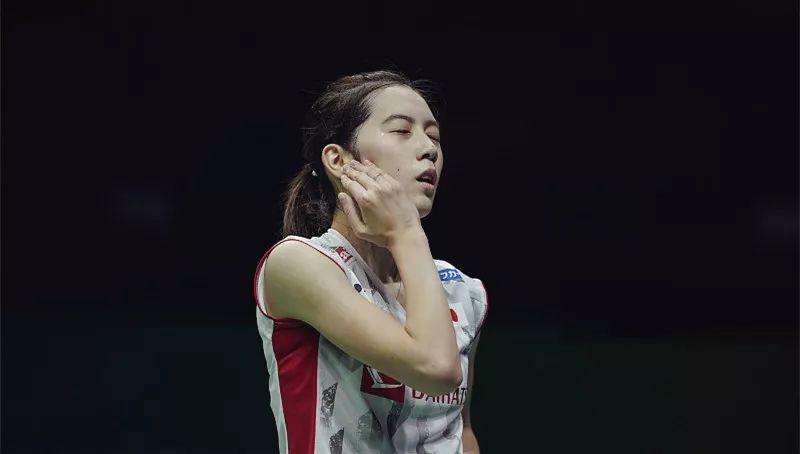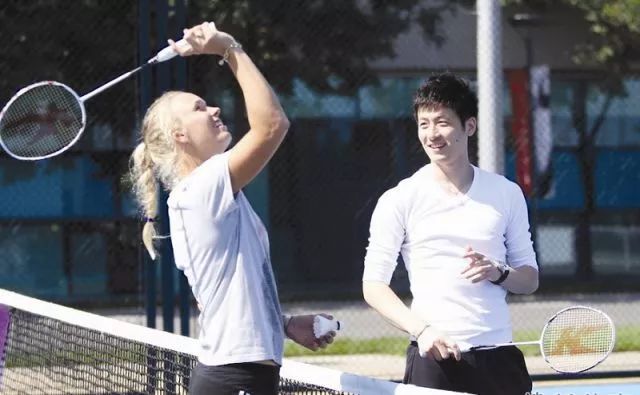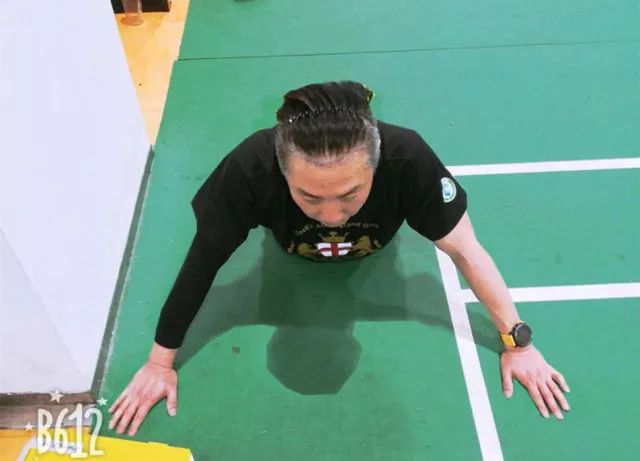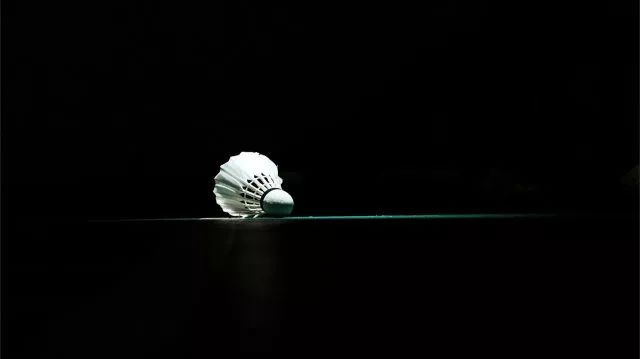Is playing badminton in the evening harmful? Did you know what the best time of day is for playing badminton?


Actually, regarding the best time to play badminton
It has always been a highly controversial topic.
Because people are working out at all times of the day.
01. Playing badminton in the morning
Before this city has even woken up.
Some people like starting their day with exercise.

Early morning exercise helps boost nerve excitability, enhances metabolic efficiency, and significantly contributes to maintaining high levels of mental and physical energy—preparing you to tackle the day ahead with renewed vigor and focus.
Exercising before breakfast, rather than after, can burn 20% more calories. This is because, after an overnight period of energy use, exercising on an empty stomach means your body lacks glycogen stores, prompting it to tap into fat reserves for fuel instead. Over time, this practice can help manage weight and maintain a toned physique.

However, exercising first thing in the morning may leave your body feeling slightly stiff after a night of rest, so be sure to warm up properly before starting to avoid injury. Also, drink a moderate amount of warm water beforehand to stay hydrated during your workout.
To ensure a balanced work-life routine, it’s best not to engage in overly intense morning workouts. For safety reasons, individuals experiencing symptoms of low blood sugar are advised against exercising in the early hours.
02. Playing badminton in the afternoon
Some people choose to exercise after their midday break.
At this particular time, the body is in peak physiological condition.
Our bodies have relatively high sensitivity.
Practice some basic steps at this moment.
The results will be even better.

If you're struggling with insomnia and poor sleep quality, try exercising in the afternoon! A report in *The Journal of Physiology* highlights that for people with disrupted circadian rhythms and subpar sleep, physical activity can help reset the body's internal clock and enhance sleep. What’s more, afternoon workouts appear to be even more effective than morning sessions when it comes to improving sleep quality.
However, for most healthy individuals, the quality of sleep isn’t strongly linked to the timing of exercise. After working out, both our bodies and brains need sleep to recover, and the physical fatigue induced by exercise can actually help us fall into a restful state more quickly.

For most students and office workers, the afternoon hours are prime time for work and study—making it impractical to play badminton consistently during this period. Instead, it’s important to adjust according to your own schedule and circumstances.
03. Playing badminton in the evening
Can't get up in the morning
No time during the day
Evening badminton has become the top choice for office workers.

After a busy day at work, turning to sports is a great way to connect with your body and truly find joy. You can head to the gym to sweat it out and unleash your energy, or even lace up your vibrant gear for a night run—city nights become stylish and exhilarating as you explore them in motion.
Exercising at night can boost your body temperature and elevate your heart rate—both of which contribute to better sleep quality. Physical activity helps relieve stress, allowing your tired mind and body to unwind after a long day. Plus, it burns off any excess calories consumed throughout the day, helping to maintain a higher metabolic rate so that even while you sleep, your body continues to burn energy efficiently.
However, when exercising in the evening, be sure to pay attention to the time interval between dinner and your workout. High-intensity exercises can be done 2 hours after eating, while moderate activities should be scheduled for 1 hour post-meal. For lighter workouts, it’s most ideal to wait about 30 minutes after eating.
Additionally, be mindful of choosing appropriate exercise types—opt for activities that aren’t too intense—and make sure to finish your workout at least two hours before bedtime, as exercising too close to sleep can overstimulate the sympathetic nervous system and disrupt falling asleep.

Overall, the time you spend playing badminton should still be chosen based on your own personal circumstances.
If, after playing badminton for a while, you feel energized, have a good appetite, and notice improved sleep quality—plus your resting heart rate remains about the same as before or even slows down—it’s a clear sign that your current exercise level and timing are perfectly balanced for you.
On the other hand, if you frequently feel sleepy and struggle with sleep after playing badminton for a while, and your resting heart rate measured first thing in the morning is more than 6 beats per minute higher than usual, it’s likely you’re either overtraining or timing your workouts improperly. Ultimately, when planning your daily exercise routine, it’s best to tailor the timing to fit your personal work schedule and lifestyle.

Six Major Taboos After Playing Sports
Cannot rest immediately:When engaging in intense physical activity, a person’s heart rate quickens, muscles and capillaries dilate, and blood flow accelerates. If you stop immediately to rest at this point, the rhythmic contractions of your muscles will also cease, leading to a drop in blood pressure. This can easily trigger symptoms such as palpitations, shortness of breath, dizziness, blurred vision, pale complexion, and even fainting or shock. That’s why, after vigorous exercise, it’s important to continue with light, low-intensity movements—allowing your breathing and heart rate to gradually return to normal before finally stopping to rest.
Do not bathe immediately:After exercise, the body expands blood vessels near the skin’s surface and opens sweat pores to increase sweating, helping to maintain a stable body temperature by dissipating heat. However, taking a cold bath at this time can trigger sudden vasoconstriction due to the abrupt temperature change, while also weakening the body’s immune defenses—making you more susceptible to illness. On the other hand, showering with hot water would further boost blood flow to the skin, potentially reducing blood supply to the heart and brain, leading to dizziness, lightheadedness, or even fainting and shock. That’s why it’s crucial to rest for a while after intense physical activity before taking a bath.
Don't drink excessively just to quench your thirst:After intense exercise and feeling thirsty, some athletes may gulp down cold water or other beverages, which can actually increase the burden on the stomach and intestines, diluting gastric juices. Drinking too quickly can also cause blood volume to rise too rapidly, putting sudden strain on the heart—and in some cases, even leading to symptoms like chest tightness or abdominal bloating. That’s why it’s important not to drink excessively or too fast after exercising, and definitely avoid consuming cold drinks, as this could interfere with the body’s natural heat dissipation, potentially resulting in a cold, stomach pain, or other health issues.
Avoid consuming excessive amounts of sugar:Some tennis players believe that eating more sweets after intense exercise is beneficial. However, consuming excessive amounts of sugary foods after exercising actually leads to a significant depletion of vitamin B1 in the body, leaving people feeling fatigued and losing their appetite—both of which can hinder physical recovery. That’s why, after strenuous activity, it’s best to opt for foods rich in vitamin B1, such as vegetables, liver, and eggs.
No alcohol to relieve fatigue:After intense exercise, the body's physiological functions are already at a heightened state. Drinking alcohol at this time can cause the body to absorb alcohol more quickly into the bloodstream, leading to even greater harm to organs like the liver and stomach compared to normal conditions.
No smoking to relieve fatigue:Smoking after exercising accelerates the body's metabolism, pushing all organs into a state of heightened activity—and allowing more smoke to enter the system. As a result, smoking at this time poses even greater health risks than usual and can make you feel more fatigued.


Related Articles

4 wins and 4 losses! China's badminton team clinches both the mixed doubles gold and silver medals ahead of schedule! The women's doubles newcomers advance to the final in their debut tournament! Check out the final match schedule~

Are you familiar with the 20 "rules of the game" widely recognized in the badminton world?
